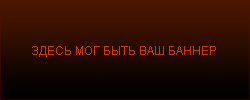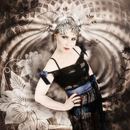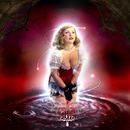|
Ayin Aleph : "Я один в поле воин, но все еще изменится!"
| 25 авг 2008 |
Еще в раннем возрасте юная москвичка AYIN ALEPH – это имя ей дали при Крещении, увлеклась музыкой. В 5 лет она начала заниматься в музыкальной школе, а в 15 оказалась в столичном училище при Консерватории. Музыкальная элита была восхищена ей, но… в 1989 году она переезжает во Францию, где с нуля пытается создать свой собственный проект с уникальным музыкальным стилем. Годы мучительного труда, лишений и вот он, первый шаг – альбом «Ayin Aleph I», это, как и планировала Ayin Aleph - ее музыка, ко... |













Her lyrics are very poetical and tragic. Through allegories and symbols, she reveals her emotional messages.
Childhood and piano.
Born in Moscow, AYIN ALEPH begins her piano studies at the age of four. The class of musical theory was located just in front of her house, at the ground floor; a day that she was out for shopping with her mother, she escaped from her attention and got into this class; she stayed listening and though she was too young to enter the school, the music theory teacher accepted to give her private initiation class of music.
After several years, she was soon noticed by the famous composer of this time Dimitri KABALEVSKI as one of the most promising virtuoso of her generation. At the age of eight, she plays her own music pieces in concert at the “Composers Union” in Moscow. She studied music all her youth in Moscow. At a very early age, AYIN writes poems and creates an oneiric personal world. At the age of fifteen she enters the Conservatory of Moscow where she kept on studying piano.
At the same time, she follows acting classes in a famous theatre studio of Moscow. Due to the time she is obliged to give for pianos studies, she had to put an end to this acting school. During this period, she writes a lot of poetry that seemed surprisingly mature in the topics.
She gave to read her poems to some of her professors of the Conservatory who really appreciated them.
She was always very different from the others, characterized by an eccentric temper that was somehow excused by her talent in this very strict political system of the Soviet Union.
She participated to Russian rock concerts, by writing lyrics and music for people that were performing in kind of forbidden clubs. In 1990, she leaves from Russia in order to enlarge her horizons and settles herself in Paris in 1992. Then, she enters the Royal Conservatory of Brussels. In 1993 she entered the European Conservatory and worked with Igor Laszko, a Bach specialist.
In the nineties, she played in several movies wanting to develop a movie career. However she didn’t find a real interest as the roles she is offered are not corresponding to her own fantastic world that she wants to see on the screen. There was no real proposition of role with which she would show her real talent and personality.
At the same time during these years, she gives piano lessons to numerous learners and distinguishes herself as an ambitious teacher who did not hesitate to confront at an early level her students with the great works of art of the classical music. It was really successful and twice a year she organised concerts for her piano students.
Her kind of disillusions with the French movie industry helped her to orientate back to music actually and especially toward singing as she had never really practised this art before as a professional.